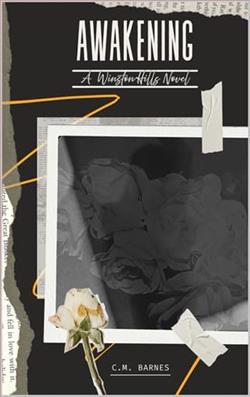Page 105 of Rising Tiger
Asha removed a folder from her backpack and handed it to him. “A list of everyone who works at the Universal Relief Initiative with Durrani.”
“Photos and bios as well,” said Harvath. “Nice job.”
“Open-source intel for the most part. NGOs put a lot of informationabout their people on their websites. It helps them tell their story and raise money.”
“Or, in Durrani’s case, it can also help backstop a cover.”
“Agreed.”
“What are these?” Harvath asked, holding up two profiles that had extra pages attached.
“We ran all of the employees, looking for anything unusual that we might be able to leverage.”
“And?”
“The first one you have there is Jaya Devi. She is the organization’s director of finance. While there haven’t been any allegations of impropriety with regard to the Universal Relief Initiative’s books, her home is in foreclosure and she is behind on her car payments.”
“Interesting,” said Harvath, studying the grandmotherly-looking woman. “What about the second?
“The second is Amit Paswan. He’s from a small village in West Bengal. He was studying chemistry at the Indian Institute of Engineering, Science, and Technology in Kolkata when his twin sister was brutally attacked by a group of men who sexually assaulted and murdered her. The trial was a shambles. All five of the men went free. Over the next eighteen months, all of them wound up dead.”
“Did this Amit Paswan kill them?” he asked, staring at the photo of a geeky, bespectacled man in his thirties.
“He was investigated, but always had an alibi from someone at school. He was never charged.”
“So, then why’d you include this information on him?” asked Harvath.
“Because unlike the investigators in West Bengal, I kept digging. Each of his alibis came from someone who had been the victim of sexual assault or had an immediate family member who was.”
“Jesus.”
“He also never finished his degree. After the last man accused of murdering his sister was killed, he dropped out of school. He only had one term remaining. He never went to work in the field of chemistry. All of his employment has been in service organizations; NGOs and the like.”
“Because he’s doing penance,” said Harvath. “That’s the person we want.”
“We also have this,” said Asha, removing another folder and handing it to him.
Harvath opened it. There were high-tech schematics and 3-D renderings of the Universal Relief Initiative’s offices as well as other buildings and businesses up and down the street.
“Impressive,” he remarked. “You, Raj, and Gupta do good work.”
“We had a little help with the surveillance. There’s a very unique company that has been trying to get Raj’s attention. They put this together overnight.”
“They did a hell of a job. What’s this here?” he asked, pointing to a spot across the street from the NGO that had been highlighted.
“That’s where you and I are headed right after breakfast,” she replied. “That’s going to be our surveillance post.”
CHAPTER 59
The surveillance post was an “intimate apparel” shop on the second floor, across the street from the NGO. It was closed while its owner was away visiting family for Diwali. Gupta had been able to quietly arrange for them to use it.
“This doesn’t make you feel uncomfortable, does it?” he asked as they brought their gear in and set it down.
“No,” Asha replied, exaggeratedly stroking a piece of risqué lingerie. “Why should it? Does it makeyoufeel uncomfortable?”
“I’ve got about a half-dozen terrific comebacks about me doing some of my best work in the presence of ladies’ lingerie,” he said. “None of which I’m going to use right now.”
Asha laughed. “You kind of just did.”















